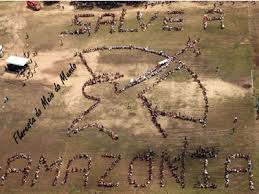Blogs

Reading the SDG#13, the first thing that I noticed, was that in the first paragraph were presented a serie of facts that show the worrisome situation what we are living. We are the first generation that are suffering the consequences of climate changes, and maybe the last which can do something about it.
In my opinion all the targets proposed in SDG#13 are important in set, they are very related, so the results of one potentiate when linked with that of another. But the targets 13.A and 13.B called my atention:
13.A
Implement the commitment undertaken by developed-country parties to the United Nations Framework Convention on Climate Change to a goal of mobilizing jointly $100 billion annually by 2020 from all sources to address the needs of developing countries in the context of meaningful mitigation actions and transparency on implementation and fully operationalize the Green Climate Fund through its capitalization as soon as possible
13.A.1
Mobilized amount of United States dollars per year starting in 2020 accountable towards the $100 billion commitment
13.B
Promote mechanisms for raising capacity for effective climate change-related planning and management in least developed countries and small island developing States, including focusing on women, youth and local and marginalized communities
* Acknowledging that the United Nations Framework Convention on Climate Change is the primary international,
intergovernmental forum for negotiating the global response to climate change.
13.B.1
Number of least developed countries and small island developing States that are receiving specialized support, and amount of support, including finance, technology and capacity-building, for mechanisms for raising capacities for effective climate change-related planning and management, including focusing on women, youth and local and marginalized communities.

(Image: 'Save Amazonia')
The indigenous communities also is seeing – yes, SEEING – climate changes, maybe, more than we see, because they are in constant contact with the nature. In the video "Brazil: Indigenous voices and the climate change debate", they say that they can see the climate changes in the sky.
"Look at the sky, it's changing, the sun is changing."
And they also can see WHY it is happening, because they are always dealing with the deforestation and any other action against nature. They know that the nature is getting sick.
And, of course, it includes the water cycle. Drought conditions predominated across much of the globe.
But compromising ourselves with change it, we also can change many things about the water, because, I believe is all interconnected.
About other areas that could be considered, I can cite the study and use of renewable fuels, something that replace the burning of fossil fuels, and the release of carbon dioxide.
A bigger effort to know more about renewable resources and to apply them would change a lot.
Another suggestion would be the inclusion of indigenous people in discussions on the planet, and the greatest consideration with their opinion. There is still a lot of disrespect to them, and that prevents us from knowing their great wisdom about the Earth.
Post comment
1 Comment(s)
Hi Ingrid,
Thank you for sharing your passionate ideas. Indeed the all the Goal 13 targets are important. How do you think indigenous communities will benefit from these targets? Well done in referring directly to the course material as a source of evidence for the indigenous voice. How do you think we could include indigenous voices more in the climate change discussions? What value do you think their voices could add to the global talks on climate change? I wonder if more people could adopt some of the indigenous values and respect for the environment. You mentioned that we could change many things about water. Do you have any specific ideas about what we could change in relation to water? You have some great ideas here, I hope you keep thinking about these.
Allison

Allison Bruce
Oct 2, 2017